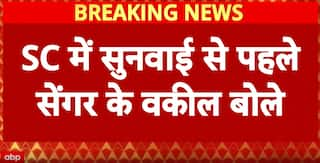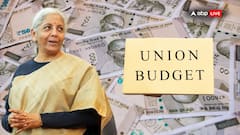Union Budget 2024: Tax Breaks The Govt Should Consider
The old tax regime offers deductions for various expenses like rent, loan payments, insurance premia, tax-saving investments, medical expenses and more, helping taxpayers lower their taxable income

Union Budget 2024: Finance Minister Nirmala Sitharaman is expected to present the Union Budget on July 23, 2024. This will be the current government's first full-fledged Budget after coming to power post the 2024 Lok Sabha elections. As inflation continues to strain household budgets, it may be safe to assume that people are looking forward to policy changes that would increase their disposable income. One of the ways to make this happen is by revising existing tax slabs as well as deductions to account for inflation. On that note, let’s take a look at some suggestions which the government may consider in the upcoming Union Budget.
Revision in Tax Slabs
Currently, there are two tax regimes - the new tax regime and the old tax regime. The new tax regime offers fewer deductions compared to the old tax regime, which has many deductions and is more popular. The current 20% and 30% tax slabs in the old regime were last revised 12 years back in the 2012-13 Union Budget.
Amid high inflation, taxpayers are expecting slab enhancements in the 2024 Union Budget. Currently, the old regime offers deductions for various expenses like rent, loan payments, insurance premia, tax-saving investments, medical expenses and more, helping taxpayers lower their taxable income. The maximum tax under this regime is 30% for taxable income above Rs 10,00,000, a slab that needs to be enhanced.
For instance, an individual has a taxable income of Rs 10 lakh. Under the old regime, their tax liability is Rs 1.17 lakh - an effective rate of 11.7%. Under the new regime, it is Rs 62,400 or 6.24%. If we adjust the 2013-14 tax (Rs 1.33 lakh) for inflation, the tax should have lowered to Rs 73,774, or 7.3%. Adjusted for inflation, the value of Rs 10 lakh in 2013 is worth Rs 5.5 lakh in 2024, and hence the ‘real’ tax rate is 21% in the old regime and 11.3% in the new regime. The ‘real’ rate rises as high as 55%-58% on incomes above Rs 50 lakh and under Rs 1 crore. Here are the proposed tax slabs and rates that may help bring relief to taxpayers.
Proposed tax slabs adjusted for inflation
| Tax Slab Rate | Current Slabs | Proposed Slabs |
| 0% | ₹0-₹250,000 | ₹0-₹500,000 |
| 5% / 10% | ₹250,001-₹500,000 | ₹500,001-₹900,000 |
| 20% | ₹500,001-₹1,000,000 | ₹900,001-₹1,800,000 |
| 30% | ₹1,000,001 onwards | ₹1,800,001 onwards |
Existing - Old regime
| Slabs | Individuals <60 years | Senior Citizens (≤60 but <80 years) | Super Senior Citizens (80 years & above) |
| Up to ₹2,50,000 | Nil | Nil | Nil |
| ₹2,50,001 - ₹3,00,000 | 5% | Nil | Nil |
| ₹3,00,001 - ₹5,00,000 | 5% | 5% | Nil |
| ₹5,00,001 - 10,00,000 | 20% | 20% | 20% |
| Above ₹10,00,000 | 30% | 30% | 30% |
Existing - New regime
| Slabs | Income Tax Rates |
| Up to ₹3,00,000 | Nil |
| ₹3,00,00 - ₹6,00,000 | 5% (Tax rebate u/S 87A) |
| ₹6,00,001 - ₹9,00,000 | 10% (Tax rebate u/S 87A up to ₹7 lakh) |
| ₹9,00,001 - ₹12,00,000 | 15% |
| ₹12,00,001 - ₹15,00,000 | 20% |
| Above ₹15,00,000 | 30% |
Enhancement in Tax Deductions
The maximum deduction limit under the popular Section 80C of the Income Tax Act, last revised in 2014, is currently set at Rs 1.5 lakh. Enhancing this limit to Rs 2 lakh in the upcoming Union Budget would align it inflationary trends and benefit taxpayers who face high tax rates on low income. Additionally, deductions under Section 80D, that comprises medical insurance premiums and preventative health check-ups, should be enhanced to Rs 50,000 for general taxpayers and Rs 100,000 for senior citizens, considering the rising costs of insurance premiums post-Covid. Thirdly, to align with rising real estate prices, home loan interest and principal payments should be housed separately in their own section, going up to Rs 5 lakh, to provide much-needed relief to homebuyers.
Besides this, the government can incorporate comprehensive personal finance education into primary and secondary school curriculums to build a financially literate society.
The author is the CEO of BankBazaar.com. This article has been published as part of a special arrangement with BankBazaar.







































